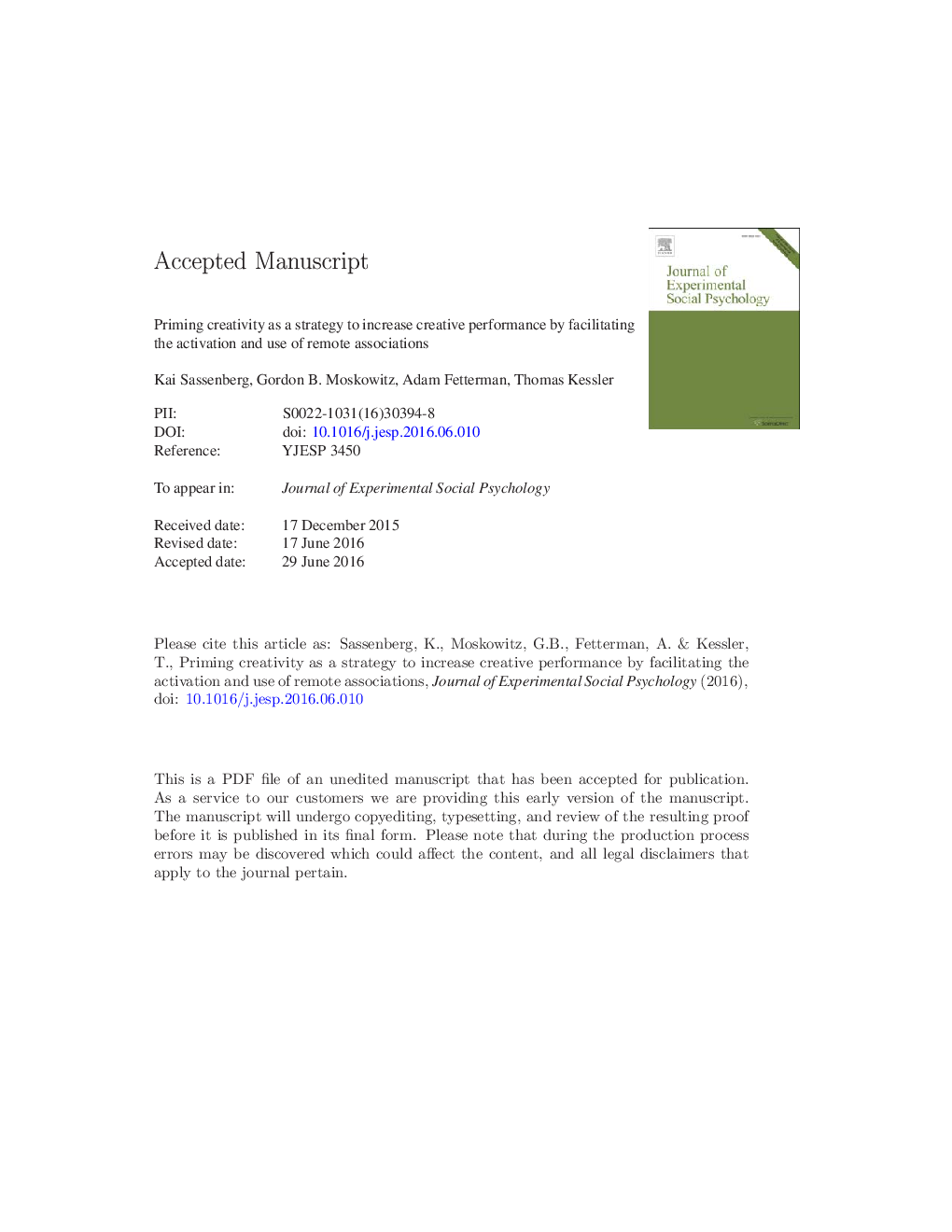| Article ID | Journal | Published Year | Pages | File Type |
|---|---|---|---|---|
| 7324373 | Journal of Experimental Social Psychology | 2017 | 51 Pages |
Abstract
Attempts at idea generation often produce outputs that are marked by restricted creativity. This lack of originality is often due to responses being tethered to recently activated knowledge and salient examples. The current research tested the hypothesis that implicitly priming creativity results in more creativity (i.e., flexibility). Experiment 1 addressed the potential underlying mechanisms that might lead to such an effect and demonstrated that creativity priming leads to the activation of remote, as opposed to close, associations to a target item. Experiments 2a, 2b, 3, and 4 showed that priming creativity (using two different procedures) leads to more original ideas in a generative task as well as better performance in the remote association task (RAT). These effects occurred independently of the conscious intention to be creative as well as motivational and mood states. Across these studies, the activation of a creative mindset undermined the sources of inflexible and uncreative responding.
Keywords
Related Topics
Life Sciences
Neuroscience
Behavioral Neuroscience
Authors
Kai Sassenberg, Gordon B. Moskowitz, Adam Fetterman, Thomas Kessler,
